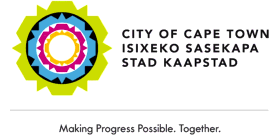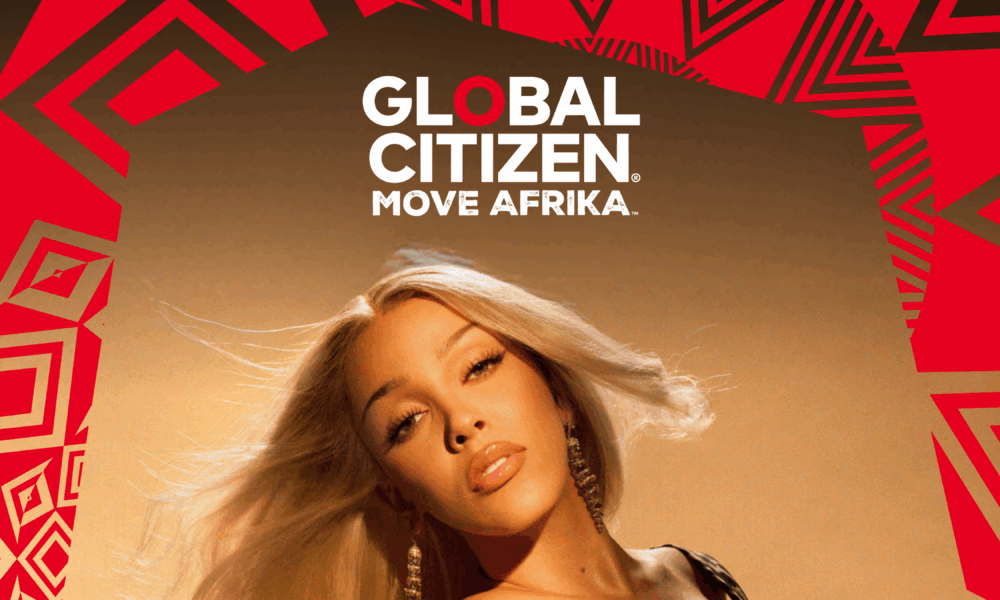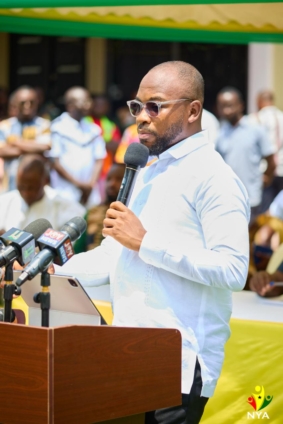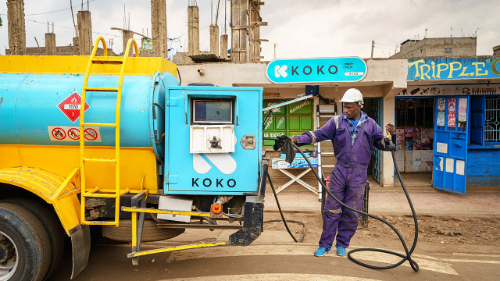East Africa's Travel Revolution: Kenya's SGR Set to Connect Uganda, Rwanda, DR Congo by 2026!

President William Ruto of Kenya has announced significant strides in East African regional integration and economic development, with major infrastructure and industrial projects set to commence. Speaking in Osukuru, Tororo District, Uganda, during the groundbreaking of the Devki Mega Steel Project alongside Ugandan President Yoweri Museveni, President Ruto outlined plans for the extension of the Standard Gauge Railway (SGR) and the petroleum pipeline, in addition to celebrating cross-border industrial collaboration.
A key announcement was the impending construction of the Standard Gauge Railway (SGR) extension. This vital railway link will stretch from Naivasha to Kampala, and further onwards to Rwanda and the border of the Democratic Republic of Congo. President Ruto confirmed that the formal launch of this ambitious project, structured as a joint venture between Kenya and Uganda, is slated for January 2026. He emphasized that the SGR extension is designed to significantly strengthen regional trade ties and deepen the overall integration within the East African Community.
Complementing the railway network, President Ruto also revealed plans for the joint extension of the petroleum pipeline, which will reach Rwanda and the DRC. This initiative is another crucial step towards enhancing regional connectivity and bolstering economic competitiveness. To facilitate this expansion, the Government of Kenya is taking a strategic move by divesting 65 percent of its shareholding in the Kenya Pipeline Company through the Nairobi Securities Exchange, actively encouraging both public and private investors from across the EAC to participate and acquire shares. This move follows recent new cooperation frameworks ratified by Kenya and Uganda during a joint ministerial meeting in Nairobi, which included an agreement for the joint ownership of pipeline infrastructure. President Ruto specifically thanked President Museveni for agreeing to this collaborative approach, highlighting the guidance given for joint public and private ownership of the Kenya Pipeline Company by both nations.
These regional projects, encompassing the petroleum pipeline, the SGR, and the planned dualling of the Rironi-Nakuru-Eldoret-Malaba road, are strategically designed to significantly enhance connectivity between the coast and the East African hinterland. By doing so, they aim to open up new, vital economic corridors, fostering growth and trade across the region.
Alongside these infrastructure developments, the Devki Mega Steel Project, whose groundbreaking ceremony President Ruto attended, stands as a testament to cross-border collaboration in the industrial sector. This project, he noted, will be instrumental in advancing industrialisation, strengthening regional self-sufficiency in steel production, and creating new value chains across the entirety of East Africa.
The economic impact of the Devki Mega Steel Project is projected to be substantial. President Ruto highlighted that the facility would create numerous jobs for young people, establish new value chains for small and medium enterprises, and generate opportunities that extend well beyond Uganda's national borders. Currently, the Tororo plant provides employment for over 400 workers, with ambitious plans to expand to 20,000 employees by 2027 across Devki's regional operations. Furthermore, the facility is expected to unlock new opportunities for EAC companies in sectors such as transport, energy, construction, and various services through supply contracts and joint ventures, indicating a broad-based economic uplift.
President Ruto lauded Devki Group Chairman Narendra Raval, describing him as a "distinguished Kenyan industrialist whose commitment and determination have been instrumental in bringing this industry to life." He also provided an optimistic outlook for Africa's steel market, which, after standing at 39.5 million tonnes in 2024, is projected to surge to 52 million tonnes by 2034. This growth is anticipated to be driven by a confluence of major infrastructure projects and expanding industrial capacity across the continent.
President Museveni, for his part, warmly welcomed the investment, emphasizing that it perfectly aligns with his long-standing policy advocacy for value addition to Africa's vast raw materials. He expressed concern over the significant disparity in GDP between African countries and developed nations like the US, arguing that Africa's rich resources could uplift the continent if processed locally before export. He underscored the critical importance of industrial projects prioritizing local employment, a policy commitment that Devki Group Chair Narendra Raval readily affirmed.
Dr. Raval reiterated this commitment, assuring the local community that the Tororo project is set to create 15,000 direct jobs in Uganda, with a pledge that 90 percent of these positions would be reserved for the people residing in the surrounding areas, reinforcing the project's direct benefit to the local populace.
You may also like...
Boxing Titans Collide Again: Mayweather vs. Pacquiao Rematch Buzz

Boxing legends Floyd Mayweather Jr. and Manny Pacquiao are set for a highly anticipated rematch on September 19 at the S...
UCL Drama: Juventus Star's Bold Promise After 'Tragic' Osimhen Error

Juventus faces a tough challenge in the Champions League second leg against Galatasaray after a 5-2 first-leg loss. Defe...
Sundance Shake-Up: Prestigious Film Festival Unveils New 2027 Dates and Boulder Debut

The Sundance Film Festival is relocating to Boulder, Colorado, for its 2027 edition, scheduled from January 21-31. This ...
BAFTA Under Fire: Major Awards Body Launches Review After Damaging N-Word Incident

BAFTA has responded to the N-word controversy at its recent Film Awards, involving Tourette's syndrome activist John Dav...
Shocking Cancellation: 2026 La Onda Festival Scrapped After Lineup Reveal

The 2026 La Onda Festival in Napa, California, has been unexpectedly canceled just weeks after announcing a star-studded...
Star-Studded Showcase: Kravitz, Maroon 5, Ozuna & Yandel Lead 2026 Starlite Occident Marbella

The Starlite Occident Marbella festival has unveiled its initial 2026 lineup, featuring headliners like Lenny Kravitz, M...
Cape Town's Kirstenbosch Garden Blooms onto World's Most Beautiful List!

Cape Town's Kirstenbosch National Botanical Garden has been globally recognized by Homes & Gardens as one of the Most Be...
Mozambique's National Carrier LAM Soars Towards Revival with Ethiopian Airlines Power

Mozambique's government is in discussions with Ethiopian Airlines to restructure its national carrier, LAM, focusing on ...




